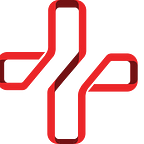Using Data To Pay For Your Healthcare
Next generation healthcare: built around the doctor-patient relationship
Snark Health is the next generation of healthcare built around the Doctor-Patient relationship. We help patients improve their access to healthcare and lower their cost of care. We help doctors make more money. We do this through “data as a common resource” using blockchain technology and a trusted payment network, without the need for governmental or commercial healthcare insurance.
We had an exciting launch with our first partner in Bungoma, Kenya and the creation of our first Virtual Health Community. The Goodwill Community Based Organization member’s include community health workers, nurses, doctors, nutritionists, small business development director with the support of the local Chief and public health officials. Community Health Workers came from as far as Kakamega, Eldoret and Busia to attend the kickoff as we’ve been asked to roll-out in those communities next.
What is a Virtual Health Community?
A Virtual Health Community is a group of people (doctors, clinical officers, nurses, community health workers, patients, operations, finance, etc.) that help improve access and lower cost of care for their members. The mission of the Virtual Health Community is to promote patient empowerment and self-management, leverage data to improve quality and cost outcomes and foster a sense of community. Key features of the Virtual Health Community include health education, social support, opportunity to participate in research, discussion forums and access to quality and affordable health care.
How Does It Work?
Using data to lower cost of care and improve access for patients
Our philosophy is that patients and doctors create the data and should be paid for the value they create.
The framework for our data strategy is broken down into three buckets:
- Proprietary data: generated on Snark platform by patients and doctors
- Semi-proprietary data: generated via partnerships
- Publicly available data
Predictive Analytics
Predictive analytics encompasses a variety of statistical techniques from data mining, predictive modeling, and machine learning, that analyze current and historical facts to make predictions about future or otherwise unknown events. Benefits of predictive analytics include:
- Patients: improved access, lower costs and more personalized care
- Doctors: earn more money per unit of time, streamline operational processes, help design the next generation of healthcare
- Society: earlier identification and intervention for public health risks (think about the possibilities if we were able to identify negative online reviews for scented candles in real time, predict the correlation to COVID-19, intervene earlier and have fewer people die from COVID)
- Companies: more efficient business operations
Team
Our team is led by a doctor in the US and an engineer in Kenya. Both are second time founders and have been serving the communities in western Kenya since 1998.
Closing thoughts
Global spending on healthcare is $8T annually. Per the World Health Organization, 20–40% of spending is wasted. More than half of the people in the world lack access to essential health services. We have an opportunity to leverage data to improve access for patients and lower cost of care for patients, while also keeping doctors at the bedside at a time when many are looking for exits from clinical medicine.
Many technology and business leaders are excited about the potential use of emerging technology to lower costs and increase profits. While we share similar enthusiasm for emerging technologies, our approach is different than traditional tech and healthcare companies. Our philosophy is the patients and doctors who create the data should be the people who benefit financially from the value they create. Our thesis is by serving patients and doctors, we will produce greater financial and social impact than the competition. Our platform is designed to be able to do good and do well.
At the end of the day, an algorithm is not going to hold your hand as you take your last breaths. From a practical perspective, when an algorithm results in a bad outcome, will the algorithm be held responsible? Or will the “captain of the ship” ultimately be responsible?
We are entering uncharted territory at the intersection of medicine, emerging technology and business during times of economic uncertainty for billions of people globally. There remain many unanswered questions about access, quality, cost and experience. At the most basic level, people need to ask themselves: Who do you trust to make the right decisions on the hard questions?
Interested in learning more?
